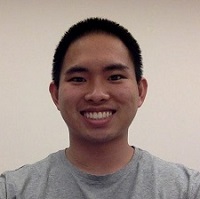Two computer science undergraduates have been instrumental in creating a virtual reality program to help addicts stay clean that’s already in use at a Nashville-area rehabilitation center.
The project is part of a partnership between Vanderbilt University clinical psychology graduate student Noah Robinson and JourneyPure, a Nashville-based company that has both residential and outpatient addiction treatment programs.
One of the VR applications, which Robinson uses during therapy sessions, has a social component and gives people struggling with addiction to alcohol, opiates or other harmful substances alternative tools to “say no.” The VR program offers a low-risk environment to practice new, healthy behaviors, such as walking with Robinson into a virtual bar, turning down alcoholic drinks offered by a stranger, and asking for water instead.

The second application involves cloud-based, self-contained environments designed to help people relax and feel better without drugs or alcohol. This VR world has colorful, free-floating spheres and uplifting music.
Christian Motyczka is one of the computer science students who has worked with Robinson on the project. Creating that suite of therapeutic environments was one part of the virtual reality application. Motyczka, a senior, and Geoff Ren, another computer science student, also worked on developing software used to track non-verbal behaviors during VR sessions and record them to a database. Among the goals are building emotional awareness among the clients/patients and giving them tools to classify their range of feelings. The tracking information also helps therapists personalize treatment.
“To be able to build something, see it go into use and now help people is very powerful to me,” Motyczka said.
Motyczka and Ren did the work through EARL – the Emotion and Anxiety Research Lab.

Ren, who worked on the positional tracking, said he was first attracted to the opportunity to use virtual reality “to do something interesting and helpful.” The most recent iteration of the app can track movements – not only position but rotation, velocity, and angular velocity for both hands and the head – at different intervals.
Ren is analyzing the data with different machine learning techniques to evaluate any correlation between someone’s movement and whether they have social anxiety disorder.
He especially appreciated the interdisciplinary aspect of the project.
“I would rather work with an expert in another field to build a VR app to solve some domain specific problem,” he said. “These just have more layers to the problem. Not only are there engineering challenges, but problems that are specific to that domain. This forces you to think about the problem from different perspectives and learn more about the domain.”
The psychology and addiction domains present plenty of opportunities. Robinson this semester launched a research study at JourneyPure to quantify the effects of VR on mood. He recruited eight undergraduate research assistants, who are spending a total of 52 hours per week running patients in virtual reality games and applications.

“These are all self-contained environments, as opposed to the social ones I use for therapy, as it’s a preliminary study to show how VR can increase positive affect and decrease negative affect,” he said.
Robinson’s research is under the direction of Steve Hollon, Gertrude Conaway Vanderbilt Professor of Psychology. Of the 30 patients who initially tried the system, 29 reported it improved their mental outlook, Robinson said.
“What we’re seeing is that if you deliver therapy when someone is in a state of relief, the therapy seems to be sinking in more effectively than if you were trying to do therapy with someone while they’re experiencing all these negative emotions,” said Robinson.